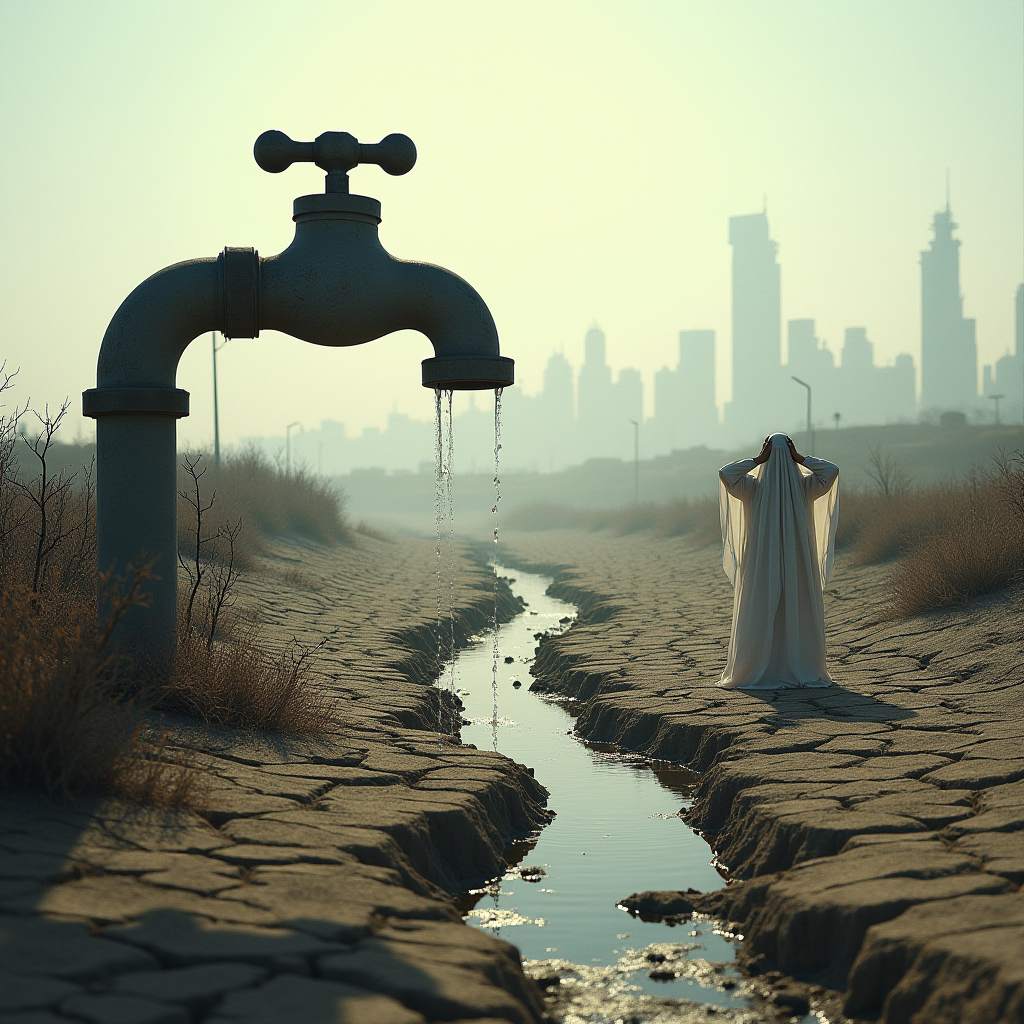How 40 Years of Water Privatisation Brought Us to the Brink
Forty years ago, over 56 million people in the UK were served by a publicly owned water and sewage system. The infrastructure may have been aging, but at least it was accountable. Today, with the population now over 67 million, we’re told to brace for hosepipe bans—while water bills rise, leaks gush through crumbling pipes, and private water companies rake in billions in profit. This is not a drought. This is a scandal.
Since water was privatised in 1989 under Margaret Thatcher’s government, the promise was that private ownership would drive investment, improve efficiency, and modernise the system. Instead, what we got was a cartel of monopolies siphoning off public wealth with almost no meaningful reinvestment.
No Hosepipe, No Discount
Will a hosepipe ban lower your water bill? Absolutely not. In fact, hosepipe bans are little more than a PR maneuver—an attempt to shift blame onto ordinary people while the companies responsible for managing supply infrastructure continue to fail upward. They say it’s due to drought. But drought is just the tip of the iceberg. The real problem lies in deliberate underinvestment, corporate greed, and decades of policy failure.
What’s Really Going Wrong?
Let’s break down the key factors fueling this crisis—all of which have been in the hands of the water companies for the past four decades:
1. No New Reservoirs
Not a single major reservoir has been built in England since 1992. In 33 years, the water companies—despite record profits—have failed to expand capacity. The population has grown by over 10 million, and summers are getting hotter. But when it comes to long-term planning? Crickets.
2. Soaring Demand

More people, more homes, more pressure. Our water consumption has gone up, but the infrastructure to deliver and store that water hasn’t. Instead of investing in scalable supply solutions, companies have focused on dividend payouts and executive bonuses.
3. Leaking Like a Sieve
Much of the UK’s water system still relies on Victorian-era pipes, many over a century old. Every day, billions of litres of clean water are lost through leaks—some estimates suggest up to 25% of all treated water never reaches a tap. Repairing these pipes should have been a top priority. But it wasn’t profitable.
4. Climate Chaos
Climate change is amplifying the problem: drier summers, more erratic rainfall, and growing unpredictability. But again, this is not a surprise—it’s a well-known trend. Yet the companies have made virtually no preparations to adapt to this reality. Water storage, flood management, and drought planning are all lagging.
5. Poor Water Storage
Even when it rains—and Britain still gets plenty of rain—we lack the capacity to store water for later use. That’s not nature’s fault. That’s corporate failure.
Forty Years of Extraction, Not Protection
Over the last four decades, private water firms have paid out over £72 billion in dividends to shareholders, all while borrowing heavily and piling debt onto the system. In short: they’ve taken our money, degraded our infrastructure, and left us with bans, bills, and broken pipes.
Meanwhile, CEO pay packages stretch into the millions. Customers are told to conserve water while companies dump sewage into rivers and seas with impunity—because it’s cheaper than fixing the system.
The Illusion of Competition
Let’s not forget: you can’t switch your water supplier. These companies are monopolies in everything but name. You pay what they demand, deal with whatever failings they deliver, and have no recourse. Accountability is a myth. Transparency is a joke.
It’s Time to Take It Back
The idea that water is a commodity to be sold for profit rather than a human right to be protected is a moral failure. The current system is not just inefficient—it’s broken by design. It has been captured by financial interests that prioritise short-term gains over long-term sustainability.
We don’t need another PR campaign about shorter showers or smart meters. We need a public water system that invests in reservoirs, repairs infrastructure, stores water, and prioritises people over profit.
Water is life. And it’s too important to be left in the hands of corporations who have spent 40 years proving they can’t be trusted with it.